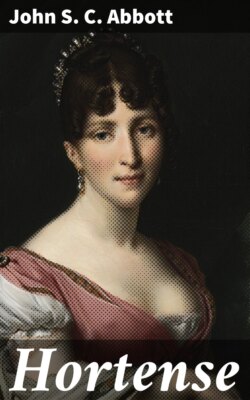Читать книгу Hortense - John S. C. Abbott - Страница 15
На сайте Литреса книга снята с продажи.
1799–1804
ОглавлениеTable of Contents
Calumnies.
It is a very unamiable trait in human nature, that many persons are more eager to believe that which is bad in the character of others than that which is good. The same voice of calumny, which has so mercilessly assailed Josephine, has also traduced Hortense. It is painful to witness the readiness with which even now the vilest slanders, devoid of all evidence, can be heaped upon a noble and virtuous woman who is in her grave.
In the days of Napoleon's power, he himself, his mother, his wife, his sisters, and his stepdaughter, Hortense, were assailed with the most envenomed accusations malice could engender. These infamous assaults, which generally originated with the British Tory press, still have lingering echoes throughout the world. There are those who seem to consider it no crime to utter the most atrocious accusations, even without a shadow of proof, against those who are not living. Well do the "Berkeley men" say:
Testimony of the Berkeley men.
"The Bonapartes, especially the women of that family, have always been too proud and haughty to degrade themselves. Even had they lacked what is technically called moral character, their virtue has been intrenched behind their ancestry, and the achievements of their own family. Nor was there at any time an instant when any one of the Bonapartes could have overstepped, by a hair's-breadth, the line of decency, without being fatally exposed. None of them pursued the noiseless tenor of their way along the vale of obscurity. They were walking in the clear sunshine, on the topmost summits of the earth, and millions of enemies were watching every step they took. The highest genius of historians, the bitterest satire of dramatists, the meanest and most malignant pen of the journalists have assailed them for half a century. We have written these words because a Republican is the only man likely to speak well of the Bonaparte family. It was, and is, and will be the dynasty of the people, standing there from 1804, a fearful antagonism against the feudal age and its souvenirs of oppression and crime."
Remarks of Napoleon at St. Helena.
Napoleon at St. Helena said: "Of all the libels and pamphlets with which the English ministers have inundated Europe, there is not one which will reach posterity. When there shall not be a trace of those libels to be found, the great monuments of utility which I have reared, and the code of laws which I have formed, will descend to the remotest ages; and future historians will avenge the wrongs done me by my contemporaries. There was a time when all crimes seemed to belong to me of right. Thus I poisoned Hoche, strangled Pichegru in his cell, I caused Kleber to be assassinated in Egypt, I blew out Desaix's brains at Marengo, I cut the throats of persons who were confined in prison, I dragged the Pope by the hair of his head, and a hundred similar abominations. And yet I have not seen one of those libels which is worthy of an answer. These are so contemptible and so absurdly false, that they do not merit any other notice than to write false, false, on every page."
It is well known, by every one acquainted with the past history of our country, that George Washington was assailed in the severest possible language of vituperation. He was charged with military inability, administrative incapacity, mental weakness, and gross personal immorality. He was denounced as a murderer, and a hoary-headed traitor. This is the doom of those in power. And thousands of men in those days believed those charges.
The voice of slander.
It is seldom possible to prove a negative. But no evidence has ever been brought forward to substantiate the rumors brought against Hortense. These vile slanderers have even gone so far as to accuse Napoleon of crimes, in reference to the daughter of Josephine and the wife of his brother, which, if true, should consign him to eternal infamy. The "Berkeley men," after making the most thorough historic investigations in writing the life both of Louis Bonaparte and Hortense, say:
"Louis was a little over twenty-three years of age at the time of his marriage. Hortense was nineteen. In his memoirs Louis treats with scorn and contempt the absurd libels respecting his domestic affairs, involving the purity of his wife's character and the legitimacy of his children. Napoleon, also, in his conversations at St. Helena, thought proper to allude to the subject, and indignantly to repel the charges which had been made against Hortense, at the same time showing the entire improbability of the stories about her and her offspring. We have found nothing, in our investigations on this subject to justify even a suspicion against the morals or integrity of Louis or Hortense; and we here dismiss the subject with the remark that, there is more cause for sympathy with the parties to this unhappy union than of censure for their conduct."
